The speakers are listed alphabetically without special order.
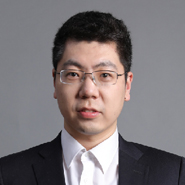
Professor Xuning Feng
Tsinghua University
China
Presentation Title: The relationship between thermal runaway and combustion of lithium-ion batteries
Xuning FENG, Ph.D. of Engineering, Associate Professor in School of Vehicle Mobility, Tsinghua University, leading a battery safety research team. He has established comprehensive calorimetric methods for characterizing the reaction sequence of battery thermal runaway. Failure mechanisms, especially the anode-driven reaction zone model, were revealed for high-energy lithium-ion batteries. Based on the proposed mechanisms, he proposed anti-failure strategies including the intrinsic safety, the active safety and the passive safety technologies. He and his team’s discoveries and inventions filled the gaps between material research and battery application scenarios, facilitating the usage of new electrochemical energy storage materials, accelerating the reliable utilization of high-energy lithium-ion batteries in electric vehicles, energy storage stations, electric ships, electric scooters, smart phones etc. He is participating in making battery standard and conducting accident investigations. He was awarded by MIT Technology Review as China Innovators Under 35, and Clarivate and Scopus Highly-Cited Researcher.
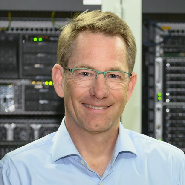
Professor Christian Hasse
Technical University Darmstadt
Germany
Presentation Title: Metals as a recyclable energy carrier in a circular economy – From global opportunities to combustion physics
Christian Hasse is a Full Professor in the Department of Mechanical Engineering at Technical University of Darmstadt, where he holds the Chair of Simulation of Reactive Thermo-Fluid Systems. Over the course of his career, he has successfully supervised 32 PhD students, and his current research group includes 30 PhD students and postdoctoral researchers. His scholarly contributions include over 280 peer-reviewed publications, more than 25 invited plenary and keynote lectures, and editorial roles in multiple scientific journals as an editorial board member, associate editor, or guest editor. He is also an active organizer of international workshops and conferences, particularly those focusing on sustainable combustion and net-zero emissions.
Prof. Hasse is a Fellow of the Combustion Institute, recognized for his pioneering contributions to turbulent combustion, solid fuel combustion, multiphase flow, and soot formation. In 2024, he was elected to the Board of Directors of the International Combustion Institute, and in 2025, he was named Fellow of the Royal Aeronautical Society (UK).
His research focuses on modeling and high-fidelity simulation of reactive and non-reactive flows, with an emphasis on CO₂-free and CO₂-neutral fuels, including hydrogen, ammonia, biomass, e-fuels, and metals. Beyond fundamental investigations into flame structures and dynamics, he actively works on the transfer of research insights to real-world applications, spanning (aero-)engines, industrial boilers, and chemical process engineering. His group has developed several high-fidelity software tools that are deployed on national Tier-2 and European Tier-0/1 supercomputers to tackle these challenges.
In 2024, Prof. Hasse was awarded an ERC Advanced Grant for his groundbreaking research on aluminum steam combustion. This project aims to unravel the fundamental properties of pressurized Al-steam flames, covering the entire scientific spectrum—from single particles to turbulent flames containing millions of particles with transformative implications for sustainable energy systems.
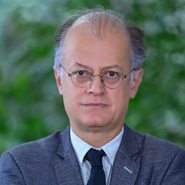
Professor Dimitrios C. Kyritsis
NEOM University
Saudi Arabia
Presentation Title: Ammonia as a fuel?
Dimitrios C. Kyritsis is the Associate Dean for Academic Affairs in the College of Technology and Design and the Acting Director of the Hydrogen and e-Fuels Advanced Research Initiative. Before his current appointment, he was a post-doctoral associate and a lecturer at the Department of Mechanical Engineering at Yale University (2000-2002), a faculty member in the University of Illinois at Urbana-Champaign (2002-2014), and the Chair of the Department of Mechanical Engineering in Khalifa University (2014-2024). In the period 2005-2010 served as the co-PI in the US-Department-of-Energy-funded Graduate Automotive Technology Education Center of Excellence on Automotive Biofuel Combustion Engines in the University of Illinois and from 2020-2023, he served as the Deputy Director of the Research and Innovation Center on CO2 and Hydrogen (RICH) in Khalifa University. He is a Fellow of the ASME, an Associate Fellow of the AIAA, an Associate Editor of the Journal of Energy Engineering, a recipient of the NSF CAREER award, the Accenture Award for excellence in student advising, as well as the Ralph R. Teetor Award of the Society of Automotive Engineers, and has served in the editorial board of Combustion & Flame and the Proceedings of the Combustion Institute.
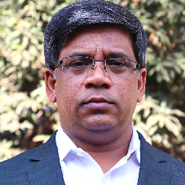
Professor Vanteru Mahendra Reddy
IIT Kharagpur
India
Presentation Title: Perspectives on MILD combustion with conventional and emerging fuels
Dr. Vanteru Mahendra Reddy is an Associate Professor in the Department of Mechanical Engineering at IIT Kharagpur, where he has been a faculty member since 2017. He obtained his Ph.D. in Aerospace Engineering from IIT Bombay, specializing in new combustion technologies such as flameless combustion with liquid fuels. After his Ph.D., he worked for three years as a Post-Doctoral Fellow at the Clean Combustion Research Centre (CCRC) at KAUST, Saudi Arabia. Dr. Reddy's research interests are diverse and include droplet and spray combustion, flameless combustion, high-pressure combustion, swirl combustion, ammonia combustion, hydrogen combustion, and porous media combustion for cooking and gas turbine applications. He has authored over 50 publications in reputed journals and 45 conference proceedings. Dr. Reddy has graduated 8 PhD students. His contributions have been recognized with numerous awards, including the Excellence in Ph.D. Thesis Award from IIT Bombay in 2014, the MIT TR35 India Young Innovator Award in 2012, the 6th ENERTIA Award for Sustainable Energy & Power in 2012 and Twice selected for the Seoul National University BK21 FOUR Project in 2023 and 2024.
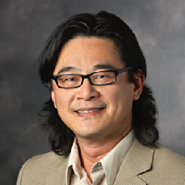
Professor Hai Wang
Stanford University
USA
Presentation Title: Recent advances in gas-phase and two-phase detonations
Hai Wang is Professor of Mechanical Engineering at Stanford University. Prior to his appointment at Stanford, he was the Northrop Chair in Engineering and Professor of Aerospace and Mechanical Engineering at USC. He received his Ph.D. in Fuel Science from Penn State in 1992. He was a Professional Research Staff at Princeton University from 1994 to 1996 before starting his faculty career at the University of Delaware. He is best known for his work on the mechanisms of PAH and carbon formation in reacting flows and development of chemical kinetic models for fuel pyrolysis and combustion. He has made contributions in the application of ab initio quantum chemistry and reaction rate theory in chemical kinetics. He developed stochastic methods for detailed modeling and uncertainty quantification. He contributed to the transport theories of nanoparticles and large molecules, atmospheric heterogeneous chemistry, and nanomaterials synthesis and its applications in solar cells and lithium ion batteries. He was the recipient of the AIAA Propellant and Combustion Award in 2018, and the Humboldt Research Award in 2019. He is a Fellow of ASME and an inaugural Fellow of the Combustion Institute. He served as the Co-Editor-in-Chief of Progress in Energy and Combustion Science from 2014 to 2024. He is currently the President of the Combustion Institute, an international, non-profit, educational and scientific society.
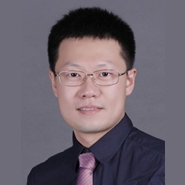
Professor Shengkai Wang
Peking University
China
Presentation Title: Smart laser diagnostics for reacting flows - Towards applications for zero-carbon energy utilization strategies
Dr. Shengkai Wang is an Assistant Professor in the Department of Mechanics and Engineering Science, College of Engineering at Peking University. He received his Ph.D. from the Department of Mechanical Engineering, Stanford University in 2017. Dr. Wang works at the interdisciplinary frontier of optical sciences, fluid mechanics and thermal engineering. He develops and applies precision laser diagnostics to investigate the nonequilibrium processes in flame dynamics, combustion kinetics, and high-enthalpy flows. His contributions have been recognized with the Bernard-Lewis Fellowship of the Combustion Institute and media coverage by the Optical Society of America. Currently, he is advancing laser spectroscopy for novel energy conversion strategies, addressing emerging measurement needs that are unmet by conventional methods.


 loading......
loading......